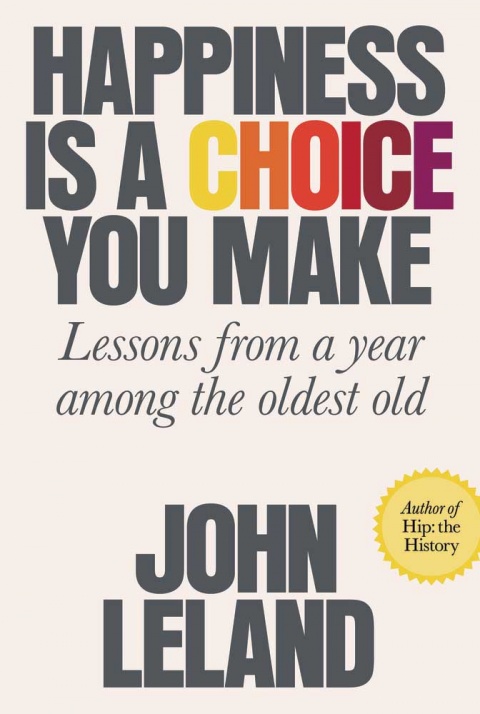Columbia College | Columbia University in the City of New York
Wisdom of the Aged
Happiness Is a Choice You Make: Lessons from a Year Among the Oldest Old (Sarah Crichton Books, $26), by John Leland ’81, opens with a quotation from David Bowie: “Aging is an extraordinary process whereby you become the person you always should have been.” For Leland, a reporter at The New York Times, sharing stories about aging turned out to be an extraordinary process as well.

Each of the six elders — Fred, Ping, John, Helen, Ruth and Jonas — has a different lesson to teach, and each gets their own chapter. The power of gratitude, living with purpose, nourishing relationships with the people who matter and making the choice to be happy — all are part of a prescription for living, at any age. If people are now in fact living longer, Leland suggests we have an obligation to live better.
Despite differences in backgrounds and circumstances, the elders were all more or less content — all minimized any hardships of their earlier lives, even if they were struggling with the last chapter, Leland writes. Their zen perspective affected the author profoundly: “I expected the year to bring great changes in them,” he says. “I didn’t expect it to change me. One of the great things about this was giving up the idea that I was an expert,” Leland explains. “I don’t know what it’s like to be 91 years old — it wasn’t about what I know. I could leave all my preconceptions behind, and it was just so rewarding.”

ERICA BERGER
Formerly an editor-in-chief of Details and an editor at Spin and Newsweek, Leland actually started his undergraduate experience at Columbia Engineering. “I fell in love with my English classes and transferred to the College after three semesters,” he says.
Leland’s path to journalism began unfolding while he was still on campus. “I wrote about music for Spectator; then one of the editors, Mark Fleischmann ’79, became the editor of Trouser Press Collectors Magazine, and I wrote for him there,” he says. “There were a lot of little rock magazines at that time, then they would fold and two or three people you knew at one magazine would go to two or three other publications. So now instead of having only one place where you could get $35 for an article, there were three — then their friends told friends, and gradually you could make a living at it.”
The Core still resonates for the author, whose previous books are Hip: The History and Why Kerouac Matters: The Lessons of On The Road (They’re Not What You Think). “My sense of syntax and grammar came from studying Greek and Latin at the College,” Leland says. “I met the smartest people I know at Columbia, and a lot of them are still my friends.”
Two of Leland’s elderly subjects have passed away since the book was published, but he is still in contact with the other four. Making and maintaining those connections are part of what made Happiness so special to him, and he credits the elders for helping him reconcile the difficulties of his own mother’s aging process. “The work I’ve done in the past was more intellect books; this is more of a heart book,” he says. “This was a life-changing experience for me. I learned to be more matter-of-fact about death, and to understand that accepting death is to live more richly.
“This year that’s been more valuable to me than ever,” Leland adds. “The news has been so upsetting night after night. My time with the elders has helped me put it in perspective. We’re going to endure, my friendships will endure, love will endure, beauty, companionship — these are the things I live for day to day.”
Issue Contents
Published three times a year by Columbia College for alumni, students, faculty, parents and friends.
Columbia Alumni Center
622 W. 113th St., MC 4530, 6th Fl.
New York, NY 10025
212-851-7852
cct@columbia.edu
Columbia Alumni Center
622 W. 113th St., MC 4530, 4th Fl.
New York, NY 10025
212-851-7488
ccalumni@columbia.edu

